Strategic Research Areas
Research in Electrical and Computer Engineering covers an extremely broad range of topics. Whether in computer architecture, energy and power systems or in nanotechnology devices, the research conducted in ECE is at the cutting edge of technological and scientific developments.

Computer Engineering
Computer engineering concerns itself with the understanding and design of hardware needed to carry out computation, as well as the hardware-software interface. It is sometimes said that computer engineering is the nexus that connects electrical engineering and computer science. Research and teaching areas with a significant computer engineering component include digital logic and VLSI design, computer architecture and organization, embedded systems and Internet of things, virtualization and operating systems, code generation and optimization, computer networks and data centers, electronic design automation, or robotics.
Related Research Areas
- Algorithms
- Artificial Intelligence
- Complex Systems, Network Science and Computation
- Computer Architecture
- Computer Engineering
- Computer Systems
- Data Mining
- Energy and the Environment
- Rapid Prototyping
- Robotics and Autonomy
- Scientific Computing
- Security
- Sensors and Actuators
- Signal and Image Processing
- Statistics and Machine Learning

Robotics and Autonomy
Robotics at Cornell spans various subareas, including perception, control, learning, planning, and human-robot interaction. We work with a variety of robots such as aerial robots, home and office assistant robots, autonomous cars, humanoids, evolutionary robots, legged robots, snake robots and more. The Collective Embodied Intelligence Lab works to design and coordination of large robot collectives able to achieve complex behaviors beyond the reach of single robot systems, and corresponding studies on how social insects do so in nature. Major research topics include swarm intelligence, embodied intelligence, autonomous construction, bio-cyber physical systems, human-swarm interaction, and soft robots.
Visit the the Cornell Engineering Robotics Website for more.
Related Research Areas

Information, Networks, and Decision Systems
This research area focuses on the advancement of research and education in the information, learning, network, and decision sciences. Our research is at the frontier of a wide range of fields and applications, including machine learning and signal processing, optimization and control theory, information theory and coding, power systems and electricity markets, network science, and game theory. The work encompasses theory and practice, with the overarching objective of developing the mathematical underpinnings and tools needed to address some of the most pressing challenges facing society today in energy and climate change, transportation, social networks, and human health. In particular, the Foundations of Information, Networks, and Decision Systems (FIND) group comprises a vibrant community of faculty, postdocs, and students dedicated to developing the mathematical underpinnings and tools needed to address the aforementioned challenges in a principled and theory-guided manner.
Related Research Areas
- Artificial Intelligence
- Biotechnology
- Complex Systems, Network Science and Computation
- Computational Science and Engineering
- Energy Systems
- Energy and the Environment
- Image Analysis
- Information Theory and Communications
- Information, Networks, and Decision Systems
- Optimization
- Remote Sensing
- Scientific Computing
- Security
- Signal and Image Processing
- Statistics and Machine Learning
- Systems and Networking

Physical Electronics, Devices, and Plasma Science
Work in this area applies the physics of electromagnetism, quantum mechanics, and the solid state to implement devices and systems for applications including energy, quantum technologies, sensing, communication, and computation. Our efforts span theory and development of new electronic and optical devices and materials, micro-electromechanical systems, acoustic and optical sensing and imaging, quantum control of individual atoms near absolute zero temperature, and experiments on high-energy plasmas at temperatures close to those at the center of the sun.
At Cornell ECE, we work on diverse topics aimed at transforming the way we view the world. Our interdisciplinary research reveals fundamental similarities across problems and prompts new research into some of the most exciting and cutting-edge developments in the field.
Related Research Areas
- Advanced Materials Processing
- Astrophysics, Fusion and Plasma Physics
- High Energy Density, Plasma Physics and Electromagnetics
- Integrated Circuits
- Materials Synthesis and Processing
- Microfluidics and Microsystems
- Nanotechnology
- Photonics and Optoelectronics
- Physical Electronics, Devices, and Plasma Science
- Semiconductor Physics and Devices
- Sensors and Actuators
- Solid State, Electronics, Optoelectronics and MEMs

Circuits and Electronic Systems
Integrated circuits are ubiquitous and integral to everyday devices, from cellular phones and home appliances to automobiles and satellites. Healthcare, communications, consumer electronics, high-performance scientific computing, and many other fields are creating tremendous new opportunities for innovation in circuits and electronic systems at every level. Research in this area spans topics including analog and mixed signal circuits, RF transceivers, low power interfaces, power electronics and wireless power transfer, and many others.
Related Research Areas

Bio-Electrical Engineering
Biological and Biomedical Electrical Engineering (B2E2) consists of both applied and fundamental work to understand the complexity of biological systems at different scales, e.g., from a single neuronal or cancer cell, all the way to the brain or malignant tumor. B2E2 aims to develop new hardware and computational tools to identify, characterize, and treat diseases. In the physical domain, electrical engineering approaches to integrated microsystems lead to new biological and medical sensors. These sensors consist of state-of-the-art ultrasonic, RF, optical, MRI, CT, electrical impedance transducers.
The integration of sensors, electronics are used to develop implantable and wearable devices, with decreasing size, weight, and power and increased functionality. B2E2 microsystems can help create interfaces for sensing and actuation to help understand the physiological and pathological mechanisms of diseases, and enable advanced robotic interfaces in medicine. Medical devices can generate vast amounts of data, which require both real-time and post-acquisition processing. B2E2 faculty, sometimes in collaboration with medical researchers, develop advanced computational tools to learn from and exploit data and apply artificial intelligence approaches to impact medical practice by improving: early disease detection, disease diagnosis, response to therapy assessment, and guided surgical procedures.
Related Research Areas
- Algorithms
- Bio-Electrical Engineering
- Biomedical Imaging and Instrumentation
- Biotechnology
- Complex Systems, Network Science and Technology
- Computer-Aided Diagnosis
- Image Analysis
- Microfluidics and Microsystems
- Nanobio Applications
- Nanotechnology
- Neuroscience
- Remote Sensing
- Scientific Computing
- Sensors and Actuators
- Signal and Image Processing
- Statistics and Machine Learning

Hardware That Protects Against Software Attacks
ECE's Ed Suh and Zhiru Zhang and CS's Andrew C. Myers aim to develop both hardware architecture and design tools to provide comprehensive and provable security assurance for future computing systems against software-level attacks that exploit seven common vulnerability classes.
Image credit Beatrice Jin
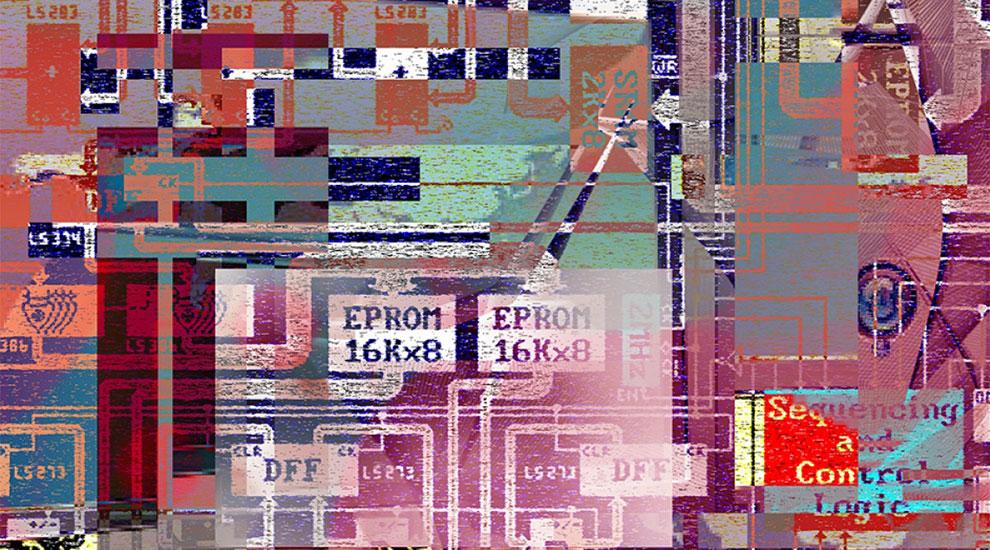
Re-architecting Next-Gen Computing Systems
Disaggregated architectures have the potential to increase resource capacity by 10 to 100 times server-centric architectures.
Image credit Beatrice Jin

Re-imagining Computer System Memories
Interdisciplinary team will provide new insights and an entirely new paradigm for the semiconductor industry in the emerging era of big data.
Image credit Beatrice Jin
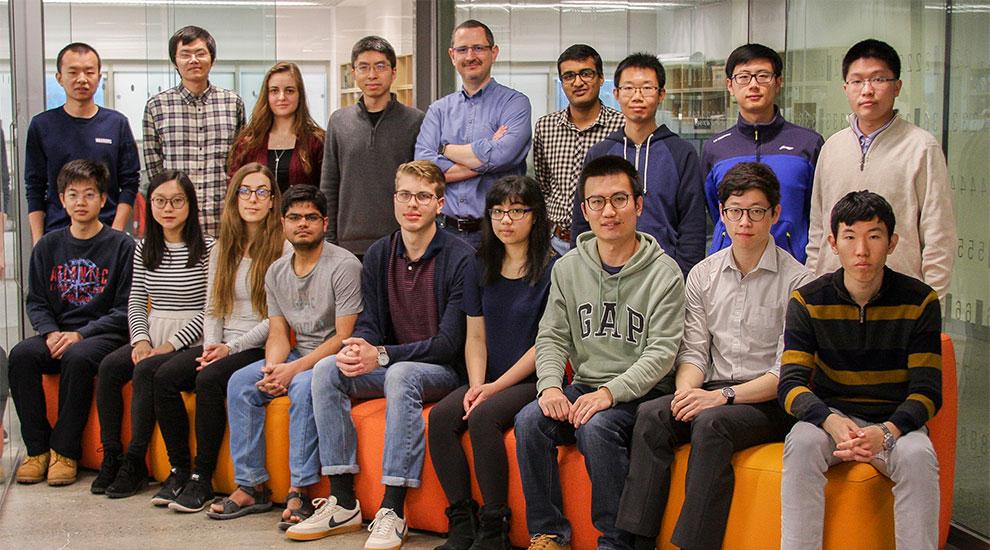
Engineers to hack 50-year-old computing problem with new center
Cornell engineers are part of a national effort to reinvent computing by developing new solutions to the “von Neumann bottleneck,” a feature-turned-problem that is almost as old as the modern computer itself.
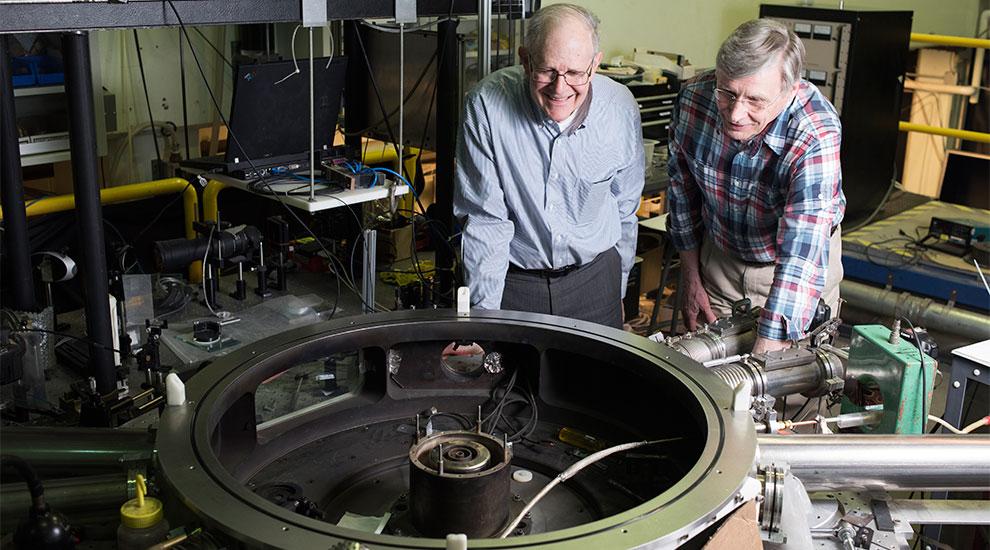
The Laboratory of Plasma Studies: Uncovering mysteries of high energy density plasma physics
In the basement of Grumman Hall, an x-ray pulse produced by a hot, dense plasma – an ionized gas – lasting only fractions of a microsecond both begins and ends an experiment. Hidden within that fraction of time lies a piece of a puzzle—data that graduate students and staff scientists at the Laboratory of Plasma Studies (LPS) will use to better understand the mysterious physics behind inertial confinement fusion.
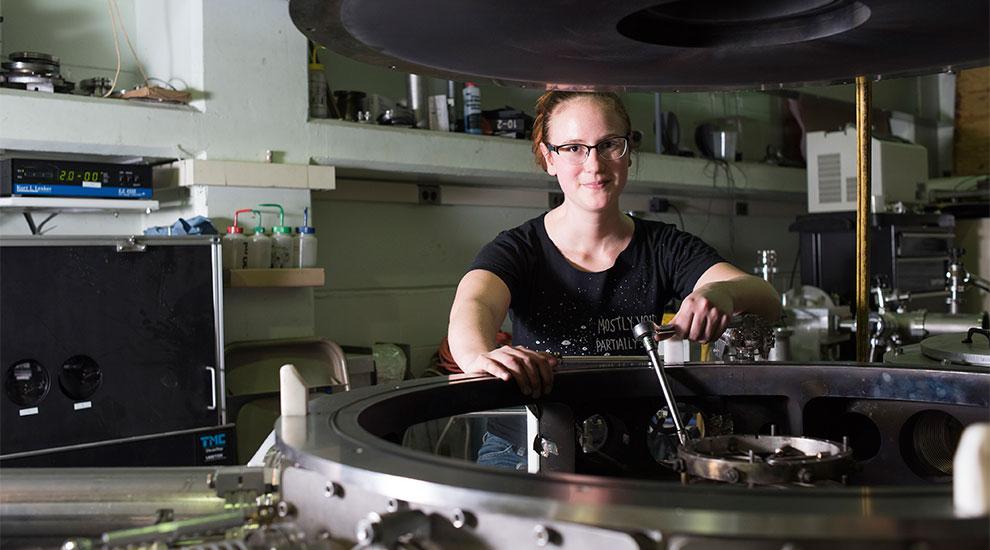
Sophia Rocco: Hoping to make the world a better place through a potential renewable energy source
When she was looking at graduate schools, physics major Sophia Rocco thought she would be in a materials science program bridging her interests in electricity and magnetism and novel materials for solar cells. Chancing upon the School of Electrical and Computer Engineering at Cornell, she discovered the Laboratory of Plasma Studies (LPS).
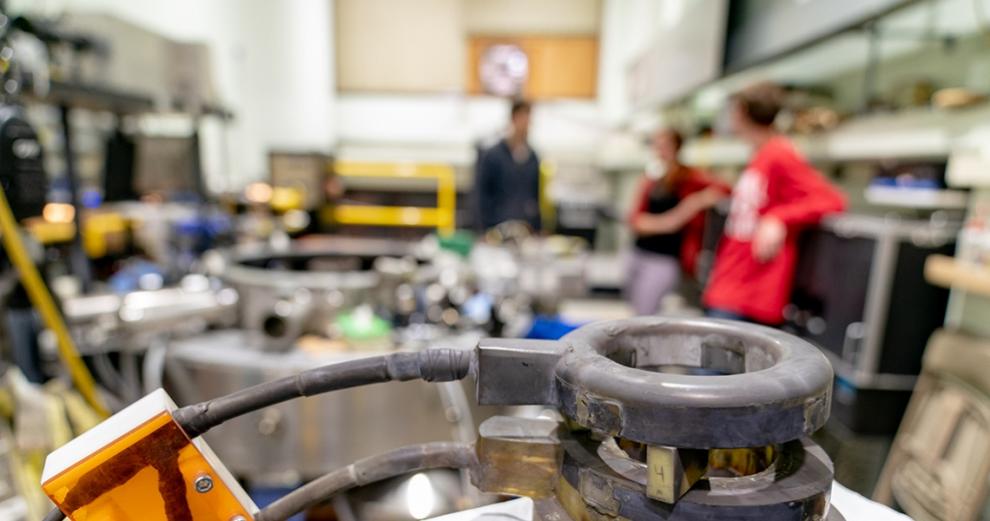
Finding the Ultimate Energy Source: Cornell’s Lab of Plasma Studies
Plasma is one of the four fundamental states of matter, but it does not exist freely on the Earth’s surface. It must be artificially generated by heating or subjecting a neutral gas to a strong electromagnetic field. Located in the basement of Grumman Hall are two large pulse-power generators that create plasma by delivering extremely high currents to ordinary matter for short periods. These generators are part of the Lab of Plasma Studies at Cornell University.
Photo credit: Dave Burbank
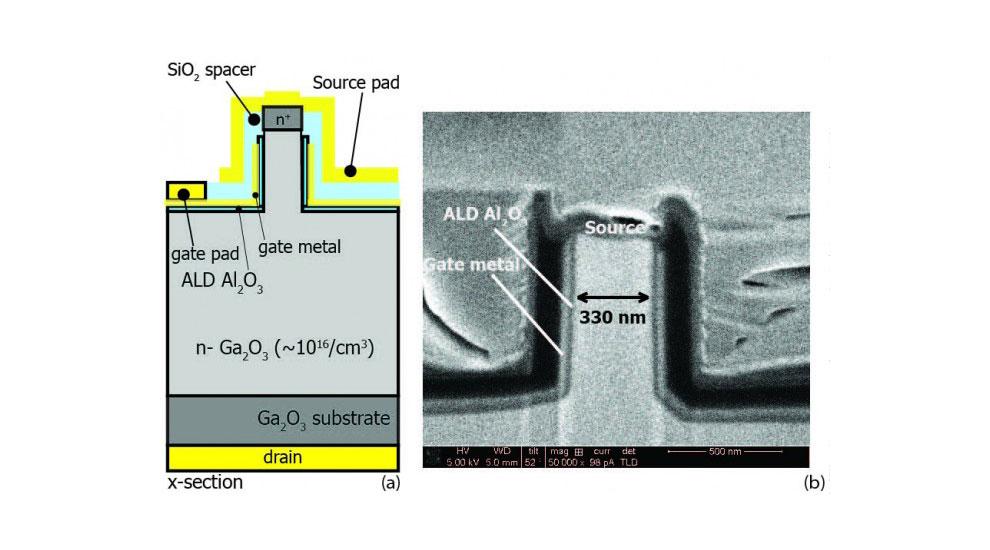
Vertical gallium oxide transistor high in power, efficiency
The research group led by Grace Xing and Debdeep Jena presented research on a new gallium oxide field-effect transistor at a conference at the Massachusetts Institute of Technology May 29-June 1.

Molnar, Jena and Xing join national consortium to develop future cellular infrastructure
Three Cornell faculty will be part of the newly established $27.5 million ComSenTer, a center for converged terahertz communications and sensing.

Data on the Brain
The NSF has found a willing partner at Cornell University in this quest to create technologies that will allow researchers to image the brain and the nervous system.

